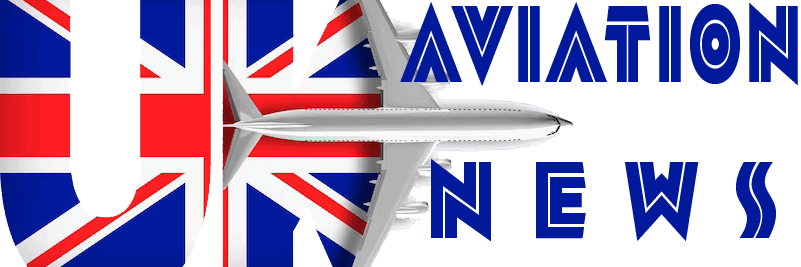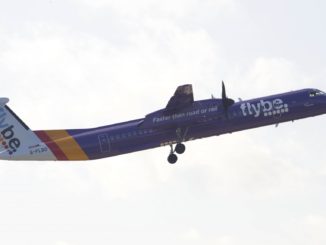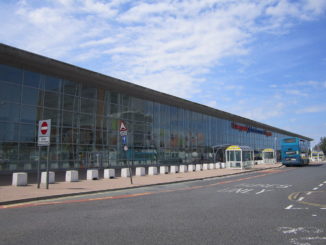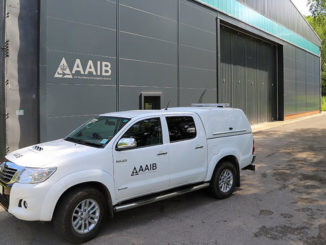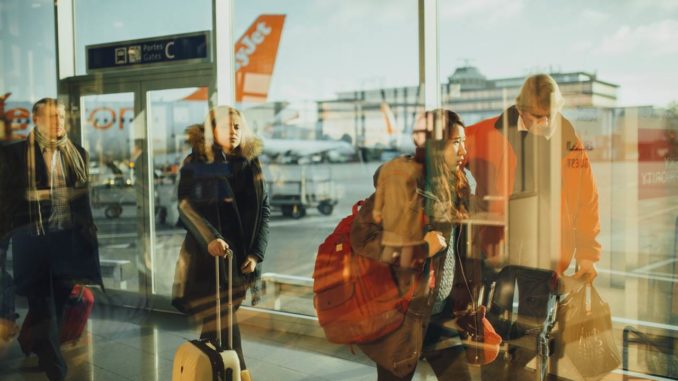
Getting drunk on a plane could land you with more than a hangover, here Philip Dawson shares his thoughts on the rise of incidents of drunk and abusive passengers in todays airline industry.
The recent decision by Jet 2 to ban the sale of alcohol on board their early morning departures is significant; not least because this announcement recognises that there is a problem to be addressed.
Whilst this measure is to be welcomed, it is merely the beginning of a long road of measures necessary to educate those minority elements of the travelling public who appear to equate flying with getting as drunk as possible, thus making the flying experience miserable and stressful for the vast majority of peaceful and law-abiding passengers who just want to get from A to B with the minimum of fuss.
Thanks to the actions of a tiny but deadly minority, all air passengers have become subject to extreme security measures which already make the airport experience a stressful and fraught process even before you get to the departure gate. Most passengers realise that these measures are in place for their protection and accept them as part of the journey. Add a raucous, inebriated and foul-mouthed ‘group of lads’ – or lasses into the mix and the whole travel experience can become untenable for the majority.
Passengers have a right to not be subjected to such behaviour in the airport, at the gate or on the aircraft. Ground staff have a right to not be abused and threatened or distracted from their duties by drunken behaviour and cabin crew most importantly must have the right to be able to carry out their duties free of the threat or potential of disruptive passengers.
It really is time to stop pussy-footing around this established negative phenomenon and start putting measures in place to counter the very real threat to aviation safety that drunk passengers present. Jet 2’s first and tentative action is to be applauded and backed up universally by government legislation. This is one area where self-regulation has been proven not to work.
So, what can be done to safeguard air passengers from the very real actual and potential threats to their safety and security caused by the over-consumption of alcohol? I would be very interested to hear of any ideas but here are a few possibilities:-
- A complete ban on the sale and consumption of alcohol anywhere on the airport premises and on board any aircraft on the UK register or operating on behalf of a UK interest company. Through necessity, this would have to include an end to alcohol sales from the duty-free shop.
- A controlled sale of alcohol scheme at the airport – perhaps operated by a token scheme whereby each passenger who wants a drink is given say two tokens where one token equals one alcoholic drink. At the bar, no token, no drink. This way, every passenger who wants a drink is restricted to just two drinks. This system though is too open to abuse, I would suggest. This scheme would need to run in tandem with no duty-free sales and no alcohol sales on board the aircraft.
- Screening of passengers who are suspected of being drunk. Ideally, this should be done before they get to the departure lounge. These days since the introduction of hold baggage charges and far more lax cabin baggage regulation, along with internet check-in, many passengers no longer need to check-in so at the check-in desk is no longer an effective screening point. there is however one pinch point that everyone has to pass through and that is airport security. I would suggest that security staff, backed up by a police presence at security, are given heightened training and powers to screen, assess passengers’ sobriety and if necessary refuse entry before they pass through the barrier.
- Extension of the Air Navigation Order reference to disruptive passengers to include the airport terminal.
- Education – perhaps a series of national TV campaigns and airport posters to educate those people who need it about the dangers of alcohol and flying, the laws on being drunk on an aircraft and the consequences of being off-loaded either before boarding or through diversion to offload.
- Do Nothing and sit back to wait for the first aviation casualties of excessive alcohol consumption.
These are but a few options for a way forward to combat this modern-day scourge of air travel. Meanwhile, we wish Jet 2 good luck with their bold step and hope that it is the beginning of a new dawn in air travel.
Below follow a few reference points for where the law stands and guide lines for airlines to follow plus three links to very interesting related material.
The CAA regulates the safety of civil aviation. In particular, the Air Navigation Order 2005 (ANO), made under section 61 of the CAA creates a number of offences designed to secure the safety of civil aircraft, some relate to the conduct of passengers and air traffic controllers as well as to aircrew. In particular, you should note the following:
Article 73 prohibits any person acting recklessly or negligently in a manner likely to endanger an aircraft, or any person therein;
Article 74 prohibits any person recklessly or negligently causing or permitting an aircraft to endanger any person or property;
Article 75 prohibits any person entering any aircraft when drunk, or being drunk in any aircraft;
Article 76 prohibits any person smoking in any compartment of an aircraft registered in the United Kingdom at a time when smoking is prohibited in that compartment by a notice to that effect exhibited by or on behalf of the commander of the aircraft;
Article 77 requires every person in an aircraft to obey all lawful commands which the commander of the aircraft may give for securing the safety of the aircraft and its passengers or for the efficiency of air navigation. This could include, for example, an order to a passenger to switch off a mobile telephone
Article 78 prohibits every person in an aircraft from using threatening, abusive or insulting words or behaviour or from behaving in a disorderly manner towards a member of the crew of the aircraft. It also makes it an offence for someone intentionally to interfere with the performance of duties by a member of the crew.
Refusal to carry passengers
Airlines have a right to refuse to carry passengers that they consider to be a potential risk to the safety of the aircraft, its crew or its passengers.
Reasons will typically include if the passenger:
is drunk or under the influence of drugs.
has refused to allow a security check to be carried out on them or their baggage.
has not obeyed the instructions of ground staff or a member of the crew of the aircraft relating to safety or security.
has used threatening, abusive or insulting words towards ground staff, another passenger or a member of the crew of the aircraft.
has behaved in a threatening, abusive, insulting or disorderly way towards a member of ground staff or a member of the crew of the aircraft.
has deliberately interfered with the performance by a member of the crew of the aircraft of their duties.
has put the safety of either the aircraft or any person in it in danger.
or if the mental or physical state or health of the passenger is a danger or risk to themselves, the aircraft or any person in it.
Unacceptable behaviour on board
Passengers must not do certain things while on board including:
Endangering the safety of an aircraft
Being drunk in an aircraft
Smoking
Disobeying a lawful command from the commander of an aircraft, and
Acting in a disruptive manner (including interfering with the work of a member of the cabin crew).
If a member of crew deems behaviour disruptive, they have the right to take measures they think reasonable to prevent the passenger continuing that behaviour. When the aircraft lands, their actions may include:
Making the passenger leave the aircraft; possibly under police escort
Refusing to carry the passenger on the remaining sectors of the journey shown on their ticket, and
Reporting the incident on board the aircraft to the relevant authorities with a view to them prosecuting for any criminal offences that may have been committed.
Serious offences could result in a large fine and/or imprisonment.
